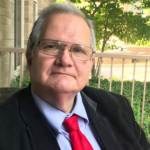
January 24 is the feast of St. Francis de Sales, a 16th– and 17th-century bishop. Looking at the Church’s liturgical calendar, somebody might ask, “Who cares about some guy that died 403 years ago? How does he matter to me?”
One reason Pope St. John Paul II canonized as many saints as he did was to provide people with more modern examples of holiness. But note the key point: the saints are examples, and holiness never goes out of style.
Holiness is not some ethereal quality, some optional je ne sais quoi. If you don’t end up holy, if you don’t end up a saint, your life was a failure. There are only two places to spend eternity: heaven and hell. And sanctity—holiness—is the admission ticket to the former.
That’s why St. Francis de Sales matters.
Francis came from a noble family of Savoy, a region that today would be the east of France bordering Switzerland, running down to the French coast around Nice, and then extending eastward into Italy around the Turin area. In the 1500s, it was on the frontlines of religious division: Geneva was just over the border, and that city was a Calvinist theocracy. Now, remember that Geneva and its environs are part of French-speaking Switzerland, which meant there were still Catholics left there. Francis was eventually sent to be their bishop. As a Catholic bishop, however, he was not going to get living space in Calvinist Geneva, so his episcopal see was in nearby Annecy, France.
Okay, you say, and so what? Why does a bishop from four centuries ago—even one with a tough assignment—matter to me today? Two reasons.
First, he was accessible. Though of noble birth and aware of the privileges of the episcopacy, Francis reduced himself to simplicity to hike the Alps to personally meet and tend to the spiritual needs of his flock scattered across the valleys. He met people where they were at. He realized that among the reasons the Reformation could spread was religious illiteracy: the debates were about refined theological distinctions, but many average people had only a rudimentary knowledge of the Faith, more the consequence of inheritance, social practice, and custom than explained teaching. Francis sought to remedy that.
He sought to remedy that because he himself, far better educated, had been caught up in it. As a nobleman, his family had big plans for him that included politics, not the priesthood. But at a certain point, Francis began seriously to worry about the question of his own salvation (the kind of anxiety that led a scrupulous Martin Luther into inventing a whole new theology). In the environs of Geneva, that anxiety was driven by the Protestant doctrine of predestination: that God had assigned some people (probably most) to damnation and there was nothing they could do about it, given that good works avail nothing to salvation. At a certain point, however, Francis became conscious of the fact that “God is Love” (1 John 4:8) and wants our salvation perhaps even more than we do. Buoyed by that trust, Francis shook off his anxieties and, with joy, embraced the priesthood.
Second, Francis countered the bleak hellfire and damnation of Calvinism with a focus on holiness. Holiness was not a rarefied virtue for some people: it was sine qua non for everybody. Holiness was not a clerical or religious preserve, while the laity mostly skated on the borderline between sin and grace. Everybody faces that borderline, but it is God’s will not that we simply squeeze under some minimal bar, but that we become holy. “Be ye perfect as my heavenly Father is perfect” (Matt. 5:48) is directed to everybody.
Nor did Francis approach holiness with glumness and depression, as if “I’ll have so much fun if I’m not holy.” No, Francis presented holiness as joy, as happiness. In our language today, he presented it as self-fulfillment. As Karol Wojtyła would write long before becoming pope, living the kind of life God wants us to live and a truly human life are in direct, not inverse proportion. To the degree human beings live the kind of life God wants, they also live a truly fulfilled human life. Holiness does not “alienate” us from our humanity (to riff on Immanuel Kant); it leads us to it.
Francis did not just talk. He wrote two wonderful books, directed to lay people. The Introduction to the Devout Life and the Treatise on the Love of God offered practical guidance in living a holy life. The Introduction was especially pathbreaking because Francis wrote it for ordinary lay people, not for religious, something quite unusual in his day.
The Second Vatican Council reminded us of the “universal call to holiness” (Lumen Gentium 39-42). In doing so, it reminded us of Our Lord’s call to perfection, something we may never obtain but for which we can and should always try. (After all, if your lover ever told you, “I think I love you enough,” would you take that as a sign that everything is wonderful or that something is awry? Love is dynamic: if you are not moving forward, you’re falling backward.) We should not forget, however, that in the Church’s history, all the saints remind us that holiness applies to everyone. Some of them—like St. Francis de Sales—even made the effort to present that teaching explicitly to others.
Space limits us from talking about how Francis collaborated with St. Jane Frances de Chantal to tailor that call to holiness to women. She was responsible for founding the Institute of the Visitation of the Blessed Virgin for those women who felt called to religious life. Both saints remind us that holiness is everybody’s affair in every time and place.
And that’s why, four centuries later, Francis still matters.



